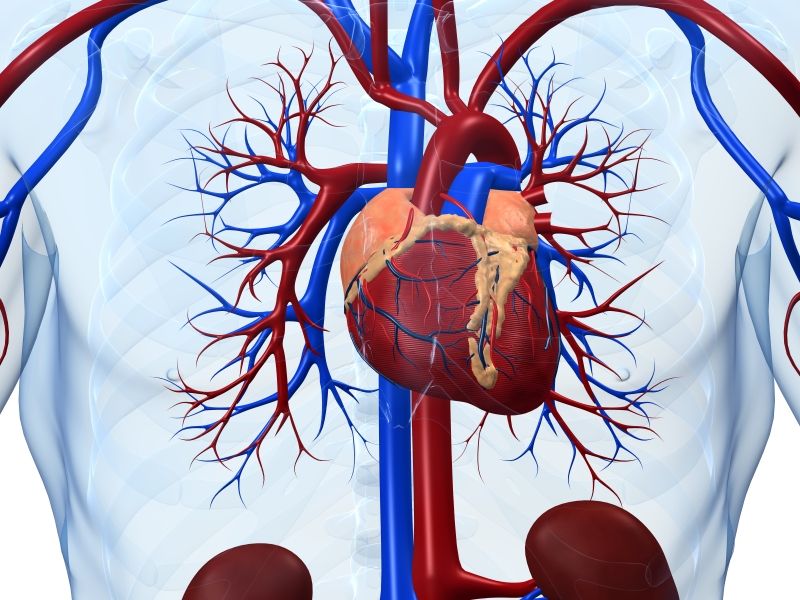
Monday, December 28, 2015


MONDAY, Dec. 28, 2015 (HealthDay News) -- Heart attack patients need quick treatment, but a new study finds that those with a history of bypass surgery often face delays at the hospital.
Guidelines say that heart attack patients should receive angioplasty -- a procedure that clears the blockages causing the heart attack -- within 90 minutes of hospital arrival. That should be enough time for doctors to get images of the heart blood vessels and see where the trouble lies.
But in the new study of nearly 300 U.S. hospitals, researchers found that delays were common for heart attack sufferers with a history of bypass surgery. About one-quarter were not treated within 90 minutes -- double the number of heart attack patients who'd never had the surgery.
The findings appear in the Dec. 28 issue of the Journal of the American College of Cardiology: Cardiovascular Interventions.
The study could not dig into the reasons for the delays. But lead researcher Dr. Luis Gruberg said that finding blood vessel blockages can be trickier when patients have had bypass surgery.
Heart attacks occur when an artery-clogging "plaque" -- a buildup of fat, calcium and other substances -- ruptures and completely blocks blood flow through the vessel.
When people arrive at the hospital with an apparent heart attack, doctors try to locate the blockage by doing a form of X-ray called an angiogram. They inject a dye into the heart arteries, then take images of blood flow throughout the heart.
If they pinpoint the obstruction, angioplasty can be done to push the blockage aside and restore normal blood flow.
The faster that process goes, the less damage to the heart muscle, said Gruberg, a professor of medicine at Stony Brook University in New York.
But when patients have had bypass, he said, doctors typically need more pictures of the heart vessels before angioplasty can be done. "And that takes time," Gruberg said.
People typically undergo bypass surgery for extensive heart disease, where multiple arteries are hardened and narrowed with plaques. A surgeon takes arteries or veins from elsewhere in the body and uses them to reroute blood around the diseased vessels.
If those patients later suffer a heart attack, they'll have a more complicated highway of blood vessels to study.
"They can come in with five or six grafts (transplanted blood vessels), and we need more pictures of the heart," Gruberg explained.
Still, he said, it may be possible to get them to angioplasty sooner. "I'm sure hospital teams are working as fast as they can," Gruberg said. "But we need to ask, is there a way to shorten these times?"
Dr. John Douglas, a cardiologist at Emory University Hospital in Atlanta, agreed.
"The time to treatment is something we can impact, so we need to do our best," said Douglas, who wrote an editorial published with the study.
He pointed to another recent study at one U.S. hospital: Over nine years, heart attack patients with a history of bypass received angioplasty as quickly as other patients.
"It can be done," Douglas said.
The current findings are based on more than 15,600 heart attack patients at 297 U.S. hospitals. Overall, 969 -- or 6 percent -- had a history of bypass surgery. Of those patients, 76 percent received angioplasty within 90 minutes of arriving at the hospital, according to the report.
That compared with 88 percent of other heart attack patients -- including those who'd had angioplasty in the past, the investigators found.
It's not clear, however, how those delays affected bypass patients' prognosis, Gruberg said. Bypass patients did have a higher risk of dying in the hospital (just over 3 percent died, versus just under 2 percent of other patients). But bypass patients' older age and poorer overall health seemed to account for the difference, he added.
However, Gruberg said, there was no information on how patients fared in the longer term.
Douglas suggested that bypass patients keep a file with information on their surgery, and the results of their last electrocardiogram, and bring that to the hospital if they think they're having a heart attack.
Gruberg stressed the importance of acting on potential heart attack symptoms, such as chest discomfort or breathlessness, right away.
And don't think driving to the hospital is the fastest route, he added.
"Always call 911," Gruberg said. Paramedics can begin treatments right away and alert the emergency room so that a team can be ready, he explained.
SOURCES: Luis Gruberg, M.D., professor, medicine, Stony Brook University, Stony Brook, N.Y.; John S. Douglas Jr., M.D., professor, medicine, Emory University School of Medicine, Atlanta; Dec. 28, 2015, Journal of the American College of Cardiology: Cardiovascular Interventions
HealthDay
Copyright (c) 2015 HealthDay. All rights reserved.
- More Health News on:
- Heart Attack









































No hay comentarios:
Publicar un comentario